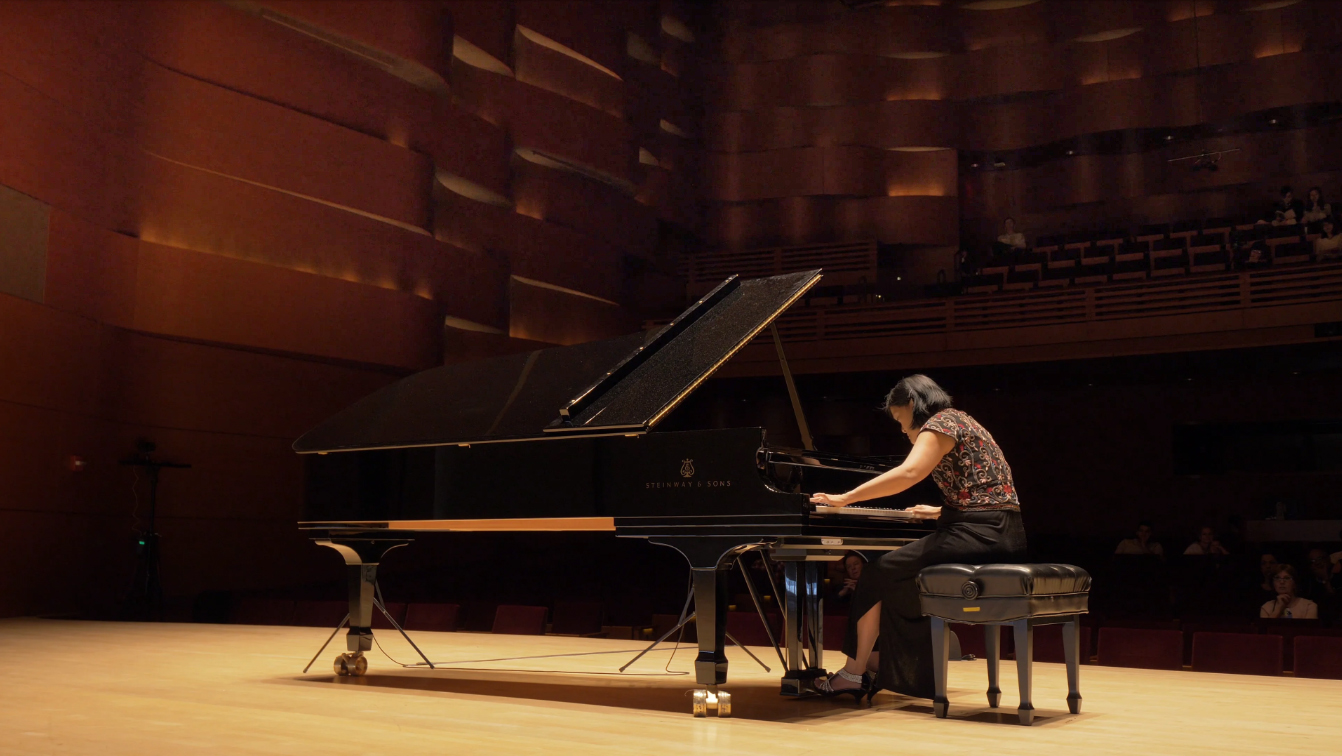Sylvia Wang plays Debussy
May 5, 2018
Faculty pianist Sylvia Wang performs Claude Debussy’s Préludes, Book 2.
Program Notes
Today, Claude Debussy needs no introduction. His influence on the music of the 20th century parallels Beethoven’s impact on both the 18th and 19th centuries and beyond. Debussy’s search for a new musical language to convey his musical ideas resulted in a unique approach to melody, harmony, and tonality. Unlike some composers in the 20th century, he chose to assimilate previous styles and techniques rather than renounce them, selectively using the various “isms” like classicism, romanticism, or nationalism, to name a few. In the process, he came to be branded as one of the foremost exponents of musical “impressionism,” a term that he disliked. Without a doubt, the variety of his output cannot be labeled so neatly and our appreciation of his oeuvre rests on our acceptance that many of his techniques defy categorization. More crucial is an understanding of the influences on him, which he assimilated to such an extent that he could isolate component parts and use these in startling new ways.
These influences are well reflected in the second book of his Préludes, ranging from ancient Greek themes, literary quotations and allusions, mythical and real figures to the many facets of nature. Taken singly, each piece is a successful vignette; together, they surpass the sum of their parts, expressing the gamut of wonder, solitude, beauty, irony and humor, while stretching the coloristic capabilities of the piano to new extremes. All the preludes share a conciseness of form, as well as a unity and consistency of language. Markings are extremely precise and detailed. Analysis of each prelude will reveal that every single note has its place, both in the foreground and within a larger whole. In this way, the pieces are essentially “classical” in nature, born of a disciplined mind and a precise craft supporting incredible flights of imagination and intuition.
See Sylvia Wang's Bio
